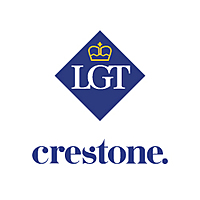How long can ‘risk on’ be sustained?
At Crestone’s most recent investment forum, we asked panellists (Jacob Mitchell, Chief Investment Officer at Antipodes Partners, Brett Gillespie, Head of Global Macro at Ellerston Capital, Nathan Parkin, Investment Director at Ethical Partners Funds Management, Thomas Vester, Chief Investment Officer at LGM Investments, Vimal Gor, Head of Bond, Income and Defensive Strategies at Pendal Group, George Tharenou, Chief Economist, Australia at UBS, Scott Haslem, Chief Investment Officer at Crestone Wealth Management and Ed Blight, Manager of Advisory, NSW at Crestone Wealth Management) to discuss how likely it was that this ‘risk-on’ period would be sustained through 2019.
Participants viewed recent developments as supportive of risk, particularly for emerging market equities. In contrast, panellists were unanimously cautious on corporate credit. A keen eye on leverage and balance sheet risks, and a focus on alpha generation were viewed to be important strategies for investors in a lower growth outlook.
Is Australia in for a rough ride?
Australia continues to be challenged by lower earnings expectations, concern about housing, as well as rising political risk. Panellists were asked for their view on the outlook and where they see value in the market.
Tharenou noted that UBS’ well-documented credit tightening thesis (triggered by the banking Royal Commission) was unfolding, and that a change in the supply of credit could have an impact on demand in the real economy.
“Last year’s story about tighter lending and falling house prices is playing out. We’re also starting to see some of the real economic consequences of that— particularly sharp falls in retail sales and car sales. We’ve seen building approvals decline quite quickly across both residential and non-residential. So, it seems clear to me that the economy’s slowing quite quickly—more than the Reserve Bank of Australia (RBA) and consensus are willing to acknowledge.”
With UBS forecasting that the Australian economy will grow 2.25 percent this year, Tharenou commented there’s a decent chance the RBA will move towards an easing bias in May and, as data gets worse, cut rates in November.
Ellerston Capital’s Global Macro Fund is positioned for an RBA cut in the next couple of months. Gillespie explained that the RBA has already said it would be concerned if there was much more of a decline in housing prices.
“We also have an election coming. [Former RBA governor] Glenn Stevens talked about the policy of least regret. We’re in an environment now where the pace of house price declines have doubled over the last three months and we’re going into an election vacuum where there’s a risk the decline could be 1.5-2.0 percent a month. If you cut rates now, it’s not going to have a huge e ect—but it might take some of that tail risk out. So that’s how you get a near-term, pre-election rate cut.”
On the other hand, Nathan Parkin, Investment Director at Ethical Partners Funds Management, feels the uncertain outlook is well appreciated by the market, with investors avoiding any stock exposed to domestic building.
“We don’t focus heavily on the macro, but the banks are better capitalised and, with the Royal Commission behind us, we think there’s some opportunity there with respect to valuation. What we don’t find attractive are companies trading on very high price to earnings ratios, regardless of the growth rate. We aren’t interested in companies trading on 30 to 50 times earnings. We think the amount of companies that can deliver the earnings growth that those multiples demand is extremely low.”
Parkin explained that because revenue growth is di icult to come by, not many companies are giving guidance—but those that do, tend to ‘squeeze hard’ to hit their numbers. He explained that Ethical Partners Funds Management has a preference for businesses that the market has low expectations for.
Tharenou observed that the decline in retail sales (particularly over the last few months) has been quite noticeable, but that he was hoping some moderate tax cuts in the budget would short circuit the weakness in the retail sector. Gor noted that central banks have little firepower, which is why all Powell cares about is inflation. Gor’s view is that Powell will want to see clear evidence of this before moving rates.
The Crestone view: We are underweight Australian equities, reflecting near-term risks to growth and elevated political uncertainty. We have a preference for domestic fixed income relative to international.
This wire is an extract of Crestone's Investment Forum - March 2019. To read the full article, including where panellists are allocating their incremental dollar, please click here.
Never miss an update
Stay up to date with the latest news from Crestone by hitting the 'follow' button below and you'll be notified every time we post a wire.
Want to learn more about Crestone Wealth Management? Hit the 'contact' button below to get in touch with us.

